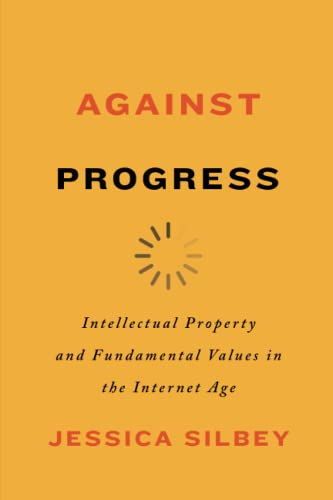
Like many people, when the draft Supreme Court opinion leaked, I became both afraid and angry. The issue of reproductive justice is exquisitely personal to so many people, and the freedom to choose whether or not to carry a pregnancy to term and become a parent has been enshrined in our fundamental law for nearly fifty years. It is so fundamental, in fact, that even before Roe v. Wade was decided in 1973, women regularly put their lives at risk in the exercise of this essential decision about their bodies and lives.
The leaked opinion was also personal to me for another reason. I am a constitutional law professor and a reproductive justice lawyer. I have been teaching this law and practicing it for the duration of my career. Making sense of the leaked opinion’s antiquated and disrespectful reasoning is a pedagogical and professional challenge the likes of which I have not yet experienced in my career. I do not welcome it, but I must face it. This essay is my first attempt at doing so, but not in the way readers might think.
Perhaps surprisingly, the way I approach the abortion debate relates to another of my fields of expertise: intellectual property law. Reproductive justice is an essential liberty for all people. The fundamental values that organize the debate around abortion care as essential to reproductive justice are, in fact, the same that organize debates about social progress and democracy with which intellectual property are concerned today: equality, privacy, distributive justice, and institutional resiliency. Abortion care may seem very far afield from copyrights, patents, and trademarks – and in most ways they are – but when those IP issues are being contested in terms of these fundamental values, they substantially overlap.
If the demise of Roe is going to happen, its demise may be explained to be part of a larger socio-political movement debating the scope and function of fundamental values in an increasingly diverse and inclusive society.
The question for me is not why Roe v. Wade is being challenged at this very moment – there are many political scientists who have painstakingly documented the campaign to overturn Roe and the reasons behind it. At the top of the list is the continuing desire by many to control the lives of women. The fight for reproductive justice has always been about contesting the meaning of women’s lives as free and independent of men.
The real question is how the present conflagration over Roe is simply the most obvious expression of the debate over fundamental values that are increasingly at the center of debates in the digital age.
Let me explain. With the internet and the digital age, we assumed rapid technological and scientific progress would make us all more equal and freer. Communication technology was supposed to help spread free speech and positive political change around the globe. Digital platforms would connect isolated and diverse people and help form alliances and political action for just causes, enabling crowdfunding and, well, more crowds backing those causes.
With technological advances, we expected welfare and justice-maximizing regimes. We anticipated better medicine, more plentiful and diverse opportunities for human flourishing, efficient government, and inclusive institutions. We expected community empowerment and collaboration. We anticipated that internet creativity and innovation would reach and benefit so many more than ever before.
But instead, we see dramatic wealth inequality, perhaps the worst in more than a century in the United States. We witness global labor precarity and opaque decision-making as automated systems replace people (ever try to get an airline or Amazon employee on the phone?). We hoped the information age would spread democracy, not demagoguery.
Instead, in the past two years alone, we have witnessed a violent attempt at a political coup in the U.S., the hijacking of electoral politics in the United States by a rogue but powerful group of GOP legislators, and the possible beginning of WWIII in Ukraine. If this is not enough, we wonder and worry whether the information platforms on which we depend for communication and financial wellbeing will be taken over by a handful of billionaires. Even worst, these platforms might already be overrun by bot farms controlled by factions hidden by the internet’s anonymity.
The modernist story of “progress” that the Constitution asserts may be promoted by, among other things, the limited exclusive rights in writings and inventions (enter the copyrights and patents of contemporary intellectual property law) has proven a farce by contemporary standards. How has this happened?
One answer is that the Constitution’s promise of “progress” through IP law has no substance. “Neutrality” in technological development and in the regulation of expressive works has been the legal mantra for the past century. The government is not allowed to pick winners or losers or even put its finger on the scale. (It does, but that’s another story).
And so, for over a century, the “progress” of technological, scientific, and aesthetic work (promoted by intellectual property law) has been measured simply by “more.” The market drives progress by accumulating as many copyrights and patents (and trademarks too) as possible with the expectation that the market will distribute them fairly and efficiently.
The 20th-century expansion of IP law – its growing importance and centering in law practice and law school curricula – rode along with an exuberant economic boom between the 1930s and the 1990s, partnering to maximize the benefits of a consumerist society by amplifying values such as individuality, consumer choice, and opportunity. Never mind that underneath this economic growth were foundational and game-changing social welfare programs also new to the United States, such as Medicare and Medicaid, Social Security, the Agricultural Adjustment Act protecting the nation’s farmers, and securities and antitrust regulation promising to protect consumers and small businesses from deceptive, manipulative, and monopolistic business practices.
The internet’s emergence in the 1990s profoundly disrupted this trajectory by democratizing the mechanisms of making and distributing all forms of creative and innovative work through digital affordances. In Alvin Toffler’s words, we are all “prosumers” – producers and consumers – and that is what the internet has wrought. We might embrace such a de-hierarchization of markets and market opportunities – who doesn’t love Etsy, YouTube, and email? (Maybe we don’t love email, but can we live without it?)
However, the incumbent industries that claim to serve the people with their innovations and creativity don’t appreciate the competition and claim to be fighting for their lives – be they telecom, movie studios, music producers, manufacturing, or medical device and pharmaceutical companies. And so, these industries started doubling down on intellectual property laws that could slow down the internet and lock-down digital technologies to prevent copying, remaking, and iterating. Peer-to-peer file sharing sites were shut down; pharmaceutical companies would extend the lives of patents to ensure monopoly pricing of essential medicines; and our cars, phones, and computers would be subject to copyright, patent, and trademark laws preventing basic repairs and raising the prices of these everyday devices.
Resistance to this trend to lock down the new tools of the digital age has puzzled intellectual property lawyers. This legal resistance is grounded in intellectual property cases that are not the “usual” kind, such as patenting human genes or the seeds of major crops like soybeans. Traditional cases are usually about unlawful copying as a kind of theft or unfair market competition but now we are seeing more and more cases that concern more complex questions of intellectual property relating not to markets but to morals. How the courts handle them can impact our access to health care, free speech, and self-determination.
For example. when PETA sued a photographer for licensing a photo that a monkey took with the photographer’s camera, the case was not about copyright royalties. It was about environmental sustainability and the dignity of animals whose lives on this planet are increasingly threatened by wasteful consumption and greed.
In another case, Monsanto sued Farmer Vernon Bowman for using the beans he grew from lawfully purchased patented seeds to plant for the late-harvest crop. Monsanto may have been complaining about losing a small amount of money from the handful of beans to be used as seeds that Bowman saved, but Bowman was complaining about Monsanto’s interruption of the age-old practice of seed-saving as a necessary, frugal form of farming that sustains independent farmers.
In yet another case, Cindy Lee Garcia sued Google to take down a short film in which she was defrauded to play a part that featured an anti-Muslim screed and that directed hundreds of death threats toward her. Rather than taking down the video, Google hid behind copyright law’s rigid rules of authorship and ownership, which excludes film actors like Garcia from its privileged regime and has traditionally protected movie studios as sole owners of films. Garcia pleaded with the court to equitably expand the copyright rules or find a way to protect her privacy and bodily autonomy, which were infringed by the misrepresentation and oppression of the filmmaker. She also made arguments about the exacerbation of privacy invasion by platforms generally, like YouTube, Twitter, Facebook, and Amazon whose policies prioritize efficiency and growth over other values. Garcia’s case was about how the essential digital institutions of the 21st century have failed ordinary people like her and serve only the powerful.
These are strange IP cases by twentieth-century standards because they are not about market efficiency and transaction costs. They are debating moral narratives that urge us not to outsource our morals to markets. These cases are built by plaintiffs seeking justice for everyday people, not only for the capitalized incumbents. They are grounded in narratives searching for an ethical consensus about what we should be caring about when we award intellectual property rights. They are about equality, privacy, and distributive justice. And they are about the inclusivity of institutions and their ability to protect everyday people from violence and financial precarity through systems that should be transparent, accountable, and measured. In other words, these cases are rethinking “progress” toward which the constitutional goal of “science and the useful arts” is aimed.
And this brings me back to abortion access and gender equality. Strange as it may seem on the surface, intellectual property law today is one of the areas of legal study where fundamental values of bodily autonomy (such as health care access) and equal dignity (as a necessary means by which women live free lives) are frequently at stake and adjudicated.
Whether similar debates are happening in other federal statutory regimes such as bankruptcy law or environmental law is for another legal scholar to study. As a constitutional law and IP scholar, I understand what is happening now as a reaction to the fading of old-world privileges and assumptions. Samuel Alito’s draft opinion with its reverence for the 17 and 18th-century rules of couverture and a faulty original understanding of the open-ended constitutional text is a swan song of dated legal theory and practices. His draft opinion reminds me of Big Tech or Big Pharma complaining about any government regulation of access and price or when the legacy entertainment companies complain about easy internet streaming ignoring the interests of and inputs from all of us.
Don’t misunderstand me. I know that overturning Roe v. Wade is going to kill women. It is going to send more women and their children into poverty, and women with children already comprise a substantial portion of the economically disadvantaged in the United States. But the arguments about access to the essential products and mechanisms of digital age creativity and innovation, which are controlled by the most powerful and wealthy companies in the world, are also about lives on the line and the self-determination, privacy, and equal dignity of all of us relying on those tools.
Roe v. Wade’s impending demise is visceral. I believe it is a declaration of war. But it is a war happening on many fronts. To prevail, we must draw the parallels between the leaked draft’s oppressive worldview of women necessary to a “domestic infant supply” and the bloated private property regime that 20th-century IP law has generated to protect the economically powerful. Privatizing the internet’s affordances and demeaning the importance of the public domain and sustainable, shared resources threaten us all.
We must directly engage in the moral, ethical, and legal arguments to expose the larger intention of the leaked opinion and fortify our hard-won fundamental rights. The Supreme Court underestimates how things have changed. We will not go back. We will fight for these fundamental rights – all of them – as we have for decades until the old world has faded from view.

Jessica Silbey
Jessica Silbey is Professor of Law at the Boston University School of Law, a reproductive justice lawyer, and author of a new book Against Progress: Intellectual Property and Fundamental Values in the Internet Age.







